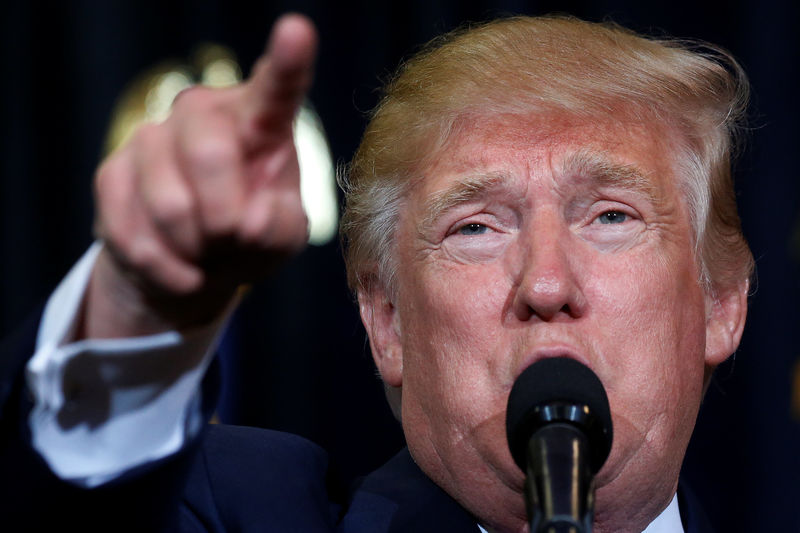Investing.com – U.S. President Donald Trump said on Tuesday the United States would leave the 2015 Iran nuclear agreement, paving the way for new sanctions on Iran’s energy industry.
"I am announcing today that the United States will withdraw from the Iran nuclear deal," Trump said. "We will be instituting the highest level of economic sanctions on Iran."
On the New York Mercantile Exchange crude futures for June delivery fell $1.67, or 2.36%, to settle at $69.06 a barrel, while on London's Intercontinental Exchange, Brent fell 0.92% to trade at $75.48 a barrel.
The outcome was widely expected as Trump has long criticised the Iran nuclear deal, claiming it was “the worst deal ever.”
"It is clear to me that we cannot prevent an Iran nuclear bomb under the current deal," Trump said on Tuesday.
The president’s decision to leave the 2015 accord, and not waive sanctions on Iran is expected to weigh on Tehran’s energy sector, stifling output and further cutting global crude supplies.
The US Treasury reportedly said Tuesday that the United States would re-impose sanctions on Tehran including transactions with the Iranian central bank and designated Iranian financial institutions after the expiry of 90-and 180-day wind-down periods, Reuters said, citing the U.S. Treasury.
The loss of Iran crude supply could boost oil prices by as much as $3.5 a barrel, Goldman Sachs said in a note to clients.
A six-month loss of 250,000 barrels of oil per day of Iran supply could support oil prices by $3.5 per barrel if other OPEC members do not respond to offset it, Goldman Sachs said.
The bank also cited further geopolitical tensions in “key oil producing countries” adding an additional risk premium to oil prices.
"In fact, growing geopolitical tensions in key oil producing countries like Iran, Saudi Arabia, Venezuela, Libya and Nigeria create risks of additional production losses in the face of depleted inventory buffers,” Goldman Sachs (NYSE:GS) said.
